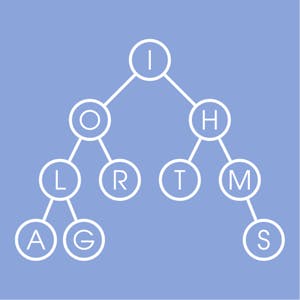Plant Bioinformatics
About this Course
The past 15 years have been exciting ones in plant biology. Hundreds of plant genomes have been sequenced, RNA-seq has enabled transcriptome-wide expression profiling, and a proliferation of \"-seq\"-based methods has permitted protein-protein and protein-DNA interactions to be determined cheaply and in a high-throughput manner. These data sets in turn allow us to generate hypotheses at the click of a mouse. For instance, knowing where and when a gene is expressed can help us narrow down the phenotypic search space when we don\'t see a phenotype in a gene mutant under \"normal\" growth conditions. Coexpression analyses and association networks can provide high-quality candidate genes involved in a biological process of interest. Using Gene Ontology enrichment analysis and pathway visualization tools can help us make sense of our own \'omics experiments and answer the question \"what processes/pathways are being perturbed in our mutant of interest?\" Structure: each of the 6 week hands-on modules consists of a ~2 minute intro, a ~20 minute theory mini-lecture, a 1.5 hour hands-on lab, an optional ~20 minute lab discussion if experiencing difficulties with lab, and a ~2 minute summary. Tools covered [Material updated in June 2024]: Module 1: GENOMIC DBs / PRECOMPUTED GENE TREES / PROTEIN TOOLS. Araport, TAIR, Gramene, EnsemblPlants Compara, PLAZA; SUBA5 and Cell eFP Browser, 1001 Genomes Browser Module 2: EXPRESSION TOOLS. eFP Browser / eFP-Seq Browser, Araport, ARDB, TravaDB, NCBI Genome Data Viewer for exploring RNA-seq data for many plant species, MPSS database for small RNAs Module 3: COEXPRESSION TOOLS. ATTED II, Expression Angler, AraNet, AtCAST2 Module 4: PROMOTER ANALYSIS. Cistome, MEME, ePlant Module 5: GO ENRICHMENT ANALYSIS AND PATHWAY VIZUALIZATION. AgriGO, AmiGO, Classification SuperViewer, TAIR, g:profiler, AraCyc, MapMan (optional: Plant Reactome) Module 6: NETWORK EXPLORATION. Arabidopsis Interactions Viewer 2, ePlant, TF2Network, Virtual Plant, GeneMANIACreated by: University of Toronto

Related Online Courses
A good algorithm usually comes together with a set of good data structures that allow the algorithm to manipulate the data efficiently. In this online course, we consider the common data structures... more
This specialization is intended for people with some programming experience who seek an approachable introduction to how operating systems work on a fundamental level. This course will equip... more
This course equips machine learning practitioners with the essential tools, techniques, and best practices for evaluating both generative and predictive AI models. Model evaluation is a critical... more
In this course, you will develop your English conversational skills that you can use to build your personal and professional relationships. Learning activities in this course will take place on... more
This course will educate you in the characteristics and properties of natural gas, preparing you with the ability to summarize gas system components and new pipeline technologies. You will be... more







